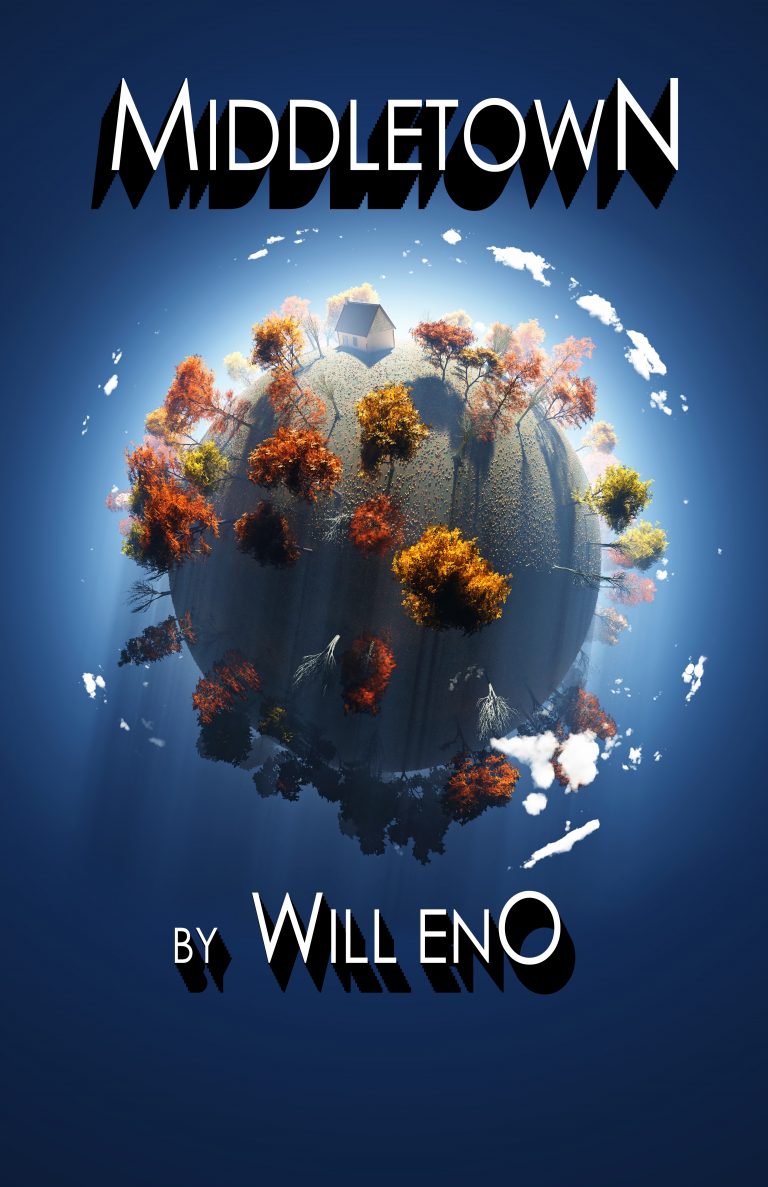
In the rapidly changing American landscape, is my town also your town? Can one town be both ordinary and bizarre? Both epic and pedestrian? Can one person’s life be both insignificant and important? This November, the Northeastern Department of Theatre presents Middletown, by Will Eno, a comic, bittersweet, and slightly surreal look at the paradoxes of contemporary American life. The stories of the inhabitants of Middletown intersect in strange and poignant ways that take them from the local library to outer space and points between. Expect the unexpected.
Middletown’s dramatic style has been located somewhere between Dr. Seuss and Thornton Wilder’s Our Town. The New York Times said of Middletown, “The strange beauty of life and its sometimes unbearable weight are both considered with a screwball lyricism [and] with clarity, eloquence and sympathy.”
Many theatregoers are familiar with Our Town, a depiction of the daily minutia that defines our lives. Eno brings a freshly poetic and absurdist sensibility to his update of those themes.
“We spend a lot of time thinking about the end and the beginning, in kind of self-aggrandizing ways,” Eno says. “We talk about the miracle of birth and the mystery of death. But, by definition, all of our lives take place in the middle of those two sort of unknowable events, in this great and often unexamined middle… I wanted to write a play that put some thoughts and feelings in the air about the miracle and the mystery and that alluded to deep and unknown forces.”
Directed by Associate Teaching Professor Jonathan Carr, the production runs from November 9th-19th in the Studio Theatre, located inside the Curry Student Center.
“Middletown looks at the ways we construct our lives in relation to our expectations,” Carr says. “What happens when we fall through the thin veneer of our expected lives into what is really happening? Middletown’s residents get a glimpse at who they are really becoming, and we watch them wrestle with the fallout. They struggle to take in the beauty, fragility, and wonder of their lives, and the play asks us to do the same.”
Jonathan Carr is an Associate Teaching Professor in the Theatre Department. Prior to joining the faculty at Northeastern, he taught at Villanova University and directed for the American Repertory Theatre/Moscow Art Theater School Institute. His taste ranges from new work — including the two world premieres Billy Witch by Gregory S. Moss and The Death of May McAllister by Deirdre O’Connor — to neglected classics like Calderón’s The Phantom Lady. He has directed many Northeastern productions including Dead Man’s Cell Phone, Clybourne Park, and The Marriage of Bette and Boo, and the musicals Company and The Last Five Years. Carr holds an MFA in Directing from Columbia University and a BA in Theatre and Dance from Amherst College.
In addition, the production features three professional guest designers: Jenna McFarland Lord designed the set, Mary Lauve designed the costumes, and Dewey Dellay designed the sound. Lighting design is by Visiting Assistant Teaching Professor Oliver Wason. The assistant director is Eva Friedman, CAMD ’18.
Will Eno, whom New York Times critic Charles Isherwood described as “a Samuel Beckett for the Jon Stewart generation,” was a finalist for the 2005 Pulitzer Prize for Thom Pain (based on nothing) and has had his work been translated into more than a dozen languages. He is a Residency Five Fellow at the Signature Theatre in NYC, which produced his newest play, Wakey, Wakey in February 2017. His play The Realistic Joneses was on Broadway in 2014, won a Drama Desk Award, was named USA Today’s “Best Play on Broadway,” topped the The Guardian’s 2014 list of American plays, and was included in The N.Y. Times’ “Best Theatre of 2014.” The Open House won the 2014 Obie Award, the Lortel Award for Outstanding Play, and a Drama Desk Award. Middletown, winner of the Horton Foote Award, premiered at the Vineyard Theatre and subsequently at Steppenwolf Theater and many other American theatres and universities.


